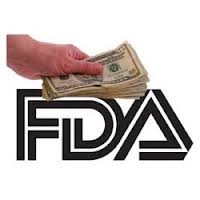In a recent groundbreaking editorial, Forbes magazine called the Food and Drug Administration (FDA) to account for playing into the hands of politicians seeking publicity and attorneys trying to win judgements. Forbes specifically accuses the FDA of levying threats and intimidation against companies using caffeine in their products. According to the editorial, this bullying is not only morally wrong, it is actually unconstitutional.

The editorial lampoons the FDA for making partisan condemnations of companies that sell products containing small to moderate amounts of caffeine, while ignoring coffee companies selling products with far larger amounts of caffeine:
Hey you! Yes you, food company (no, not you,
coffee proprietor). We’re not happy that your product has caffeine in it. Um, you know, you really might want to reconsider that particular ingredient.
The editorial explains that the FDA is marshaling “unsubtle threats and heavy-handed persuasion.” However, because Forbes is a firm believer “in due process, fair notice, consistency, and transparency from our Fourth Branch of government,” it cannot approve the FDA’s high-handed “saber-rattling.”
“The FDA frequently takes its cues on caffeine from professional activists and publicity-seeking politicians,” Forbes charges. U.S. Senators and state attorneys general have been busily besmirching (and subpoenaing) energy drink makers, and the FDA seems to have jumped on board for the bumpy ride of controlling behavior by using threats. Then, last November, the Center for Science in the Public Interest (CSPI), a nutty activist group invested with paranoia about caffeine, dispatched a two-page letter to FDA on the “new craze” of adding caffeine to processed foods. True to form, the FDA responded by raising a club to intimidate the companies involved.
An example of FDA “regulation by intimidation” surfaced on May 3, when Michael Taylor, the FDA Deputy Commissioner, called out gum maker Wrigley on a new product, stating that, while formal regulation might be forthcoming, “we hope this can be a turning point for all to prevent the irresponsible addition of caffeine to food and beverages. Together, we should be immediately looking at what voluntary restraint can be used by industry.” Wrigley got the message and on May 8 announced a halt in production of the gum.
“The agency’s approach circumvents every constitutional and statutory check and balance purposefully placed on bureaucratic action,” the editorial states. The intellectual bankruptcy of the FDA stance is luridly proven by the facts that, “Coffee is a much more widely available source of caffeine, and an equal-sized portion of it can contain twice as much caffeine as one demonized energy drink. But no one at FDA is looking to seize your or even your children’s cup (or two, or three or four cups) of Joe.”
Furthermore, Forbes says that, “as long as FDA’s actions aren’t tethered to standards or science, they threaten to sweep in products that don’t merit any concern or scrutiny.” An example is the successful FDA effort “to drive some caffeine-infused alcoholic beverages, like Four Loko” out of business, even though Ivy League studies have proven that caffeine poses no danger when combined with alcohol, and Irish coffee, a common bar drink, contains far more caffeine and alcohol than any Four Loko product.
Of course, we might well wonder why adult citizens of a free country should be forced to submit to FDA politicos sitting behind desks in Washington who presume to tell us what medicines we can take and what medical treatments we can receive.
Perhaps the next step by the FDA will be to actually deprecate and attack beverages that get their caffeine from natural products like coffee, chocolate, or tea. Where will all of this abuse come to and end? Asks Forbes, “Where indeed?”




I don’t know where else to leave this comment, so I’ll leave it here! I bought your book The Caffeine Advantage several years ago. I still have it and refer to it! Caffeine supplements have made all the difference in the world in my energy and alertness levels. I use them judiciously with (caffeine-free) Rooibos tea chasers!
I recently read with interest how Fitness Guru Jillian Michaels got in trouble for giving her clients caffeine supplements. Her spot-on retort was that nobody questions unlimited amounts of coffee chugged down, but get hysterical over a caffeine supplement. Right-on Jillian!
So many years have passed since your first edition of The Caffeine Advantage. Now energy drinks are a household word! Please give us an updated version with the latest science to mull over!
In any event, thanks for a terrific book. Like I said, I still refer to it years later.
In a latest groundbreaking editorial, Forbes journal called the Food and Drug Administration (FDA) to account for playing into the palms of politicians in search of publicity and attorneys attempting to win judgements.